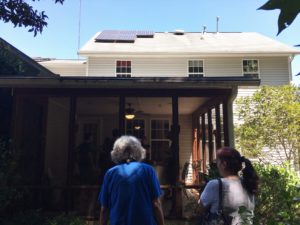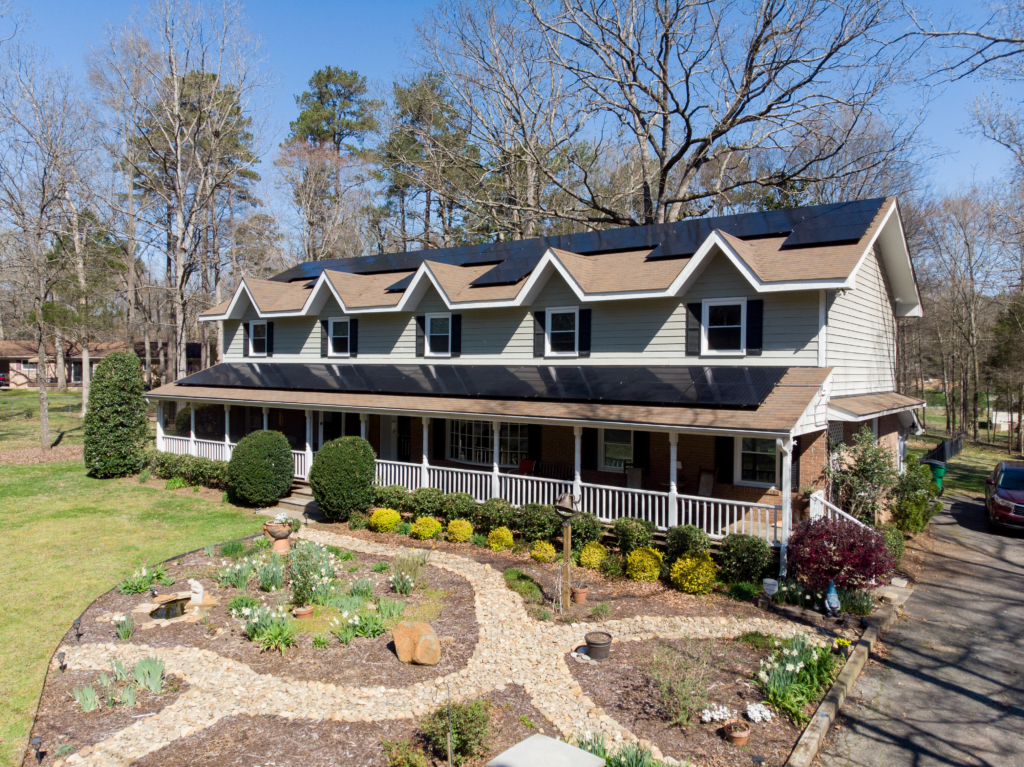Vivian’s Solar Story
Vivian’s Solar Story with Renu Energy Solutions
Hidden away on the back of Vivian and Allen’s roof is their solar array. It integrates perfectly into their lives which revolve around world travel, hiking, and gardening. Both a practical investment and a statement about taking personal responsibility for making the world more sustainable, their solar doesn’t take up much of their attention these days, though they do identify proudly as solar customers.


Frequently Asked Questions About Solar for Your Home:
How exactly does going solar and a solar system itself work?
How many solar panels do I need for my home?
Roof-size/available space: When we look at the size of your roof and the space available, we gather data that tell us the maximum number of solar panels your home or site can hold and we even consider shading. We use a software “Suneye” which takes a 360 picture of your roof and we use this photo to determine if your home is a good candidate for solar.
Energy Usage: When we determine energy usage we look at your past electrical bills from over the course of a year to make sure your system isn’t too big or too small.
Your Budget: We take your budget seriously and most importantly, we want you to be satisfied with our services. We take your feedback on how much you want to spend so that we can size your system appropriately.
What is solar net-metering?
Does Duke Energy offer net-metering?
Curious about the cost of a home solar system?
Ready to Own Your Own Energy?
Speak to Us Today!
